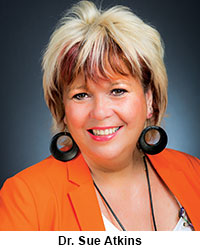What’s the right age to have the necessary good and bad touch talk with children? Recently, my child’s school announced that it was organising such a talk for kindergarten children. — Roshni C, Chennai
Although children are most vulnerable between the ages of seven and 13, there are sexual predators who target victims as early as infancy. Therefore, the best time to talk to your child about good and bad touch is as soon as they are capable of understanding your words but it’s best to keep information age-appropriate.
Here are some pointers:
• Educate children about the names of their different body parts — private and not private. Don’t shy away from using the correct anatomical names e.g, breasts, vagina, buttocks, penis.
• Help your child identify good touch: e.g, hand holding, hugging, high fives. Although these are generally acceptable, if they make them feel uncomfortable, then they are not okay.
• Explain about bad touch that hurts or leaves a bruise, cut, or burn (e.g, hitting, kicking, pushing). It is not okay for other children to push/hit/kick and if an adult does, it’s physical abuse.
• It is not okay for adults or older children to touch other children’s private organs or for adults/older children to make them look at or touch their genitals.
• Give your child examples to evaluate if they can identify a good and bad touch.
What should children do about bad touch?
• Explain to your child that she can say “No” or “Stop” or “I don’t like that” or “Don’t touch me” and/or run away. Practice this with role play.
• Educate your child that sometimes the person touching a child inappropriately will warn her to keep it a secret. Instruct them that this is not an acceptable secret and should always be shared with a trusted adult.
• Help your child identify adults who they could talk to if someone has touched her inappropriately.
• Remember that talking about good and bad touch is not a one-time conversation. It needs to be constantly reiterated.
My 14-year-old has been diagnosed with Type 1 diabetes. He is very distraught and wants to keep the diagnosis a secret. How do I convince him that it is ok for his friends and other people to know?
— Rohan Jo, Chennai
Early adolescence is a vulnerable period for onset of Type 1 diabetes aka juvenile diabetes. Blood glucose management through diet, exercise and insulin injection presents unique challenges for teens. And that’s why it is very important that your son tells his friends, teachers, and extended family about his condition to enable them to assist him if there’s a health-related emergency.
In addition, adolescence is wrought with social and behavioural changes. Encourage two-way communication, listen to his problems empathetically and constantly reassure him of your full support and love. Perhaps you could also make an appointment to discuss his diabetes condition with his teachers.
 My ten-year-old daughter is very susceptible to peer pressure. I’m afraid this is dangerous as she enters her teen years. Please advise.
My ten-year-old daughter is very susceptible to peer pressure. I’m afraid this is dangerous as she enters her teen years. Please advise.
— Riya Sen, Kolkata
It’s normal for pre-teens to experience this behavioural phase during which there’s overwhelming desire to fit into the peer group. But it’s important that you boost your daughter’s confidence and encourage her to stand her ground. Without being preachy, advise her that it’s okay to be assertive and independent. Spend quality time with her doing ‘ING’ Activities — cookING, playING, talkING, laughING, eatING together, listenING — to stay connected with her while encouraging her to make independent decisions to build confidence.
(Sue Atkins is a UK-based internationally recognised parenting expert, broadcaster, speaker and author of Parenting Made Easy — How to Raise Happy Children (2012))
Also read: Help! My daughter still throws tantrums

























